Create a more ideal social community with literature as the identity and voice ft. Yang Jiaxian, Li Qinfeng, Apyang Imiq (Cheng Ting)
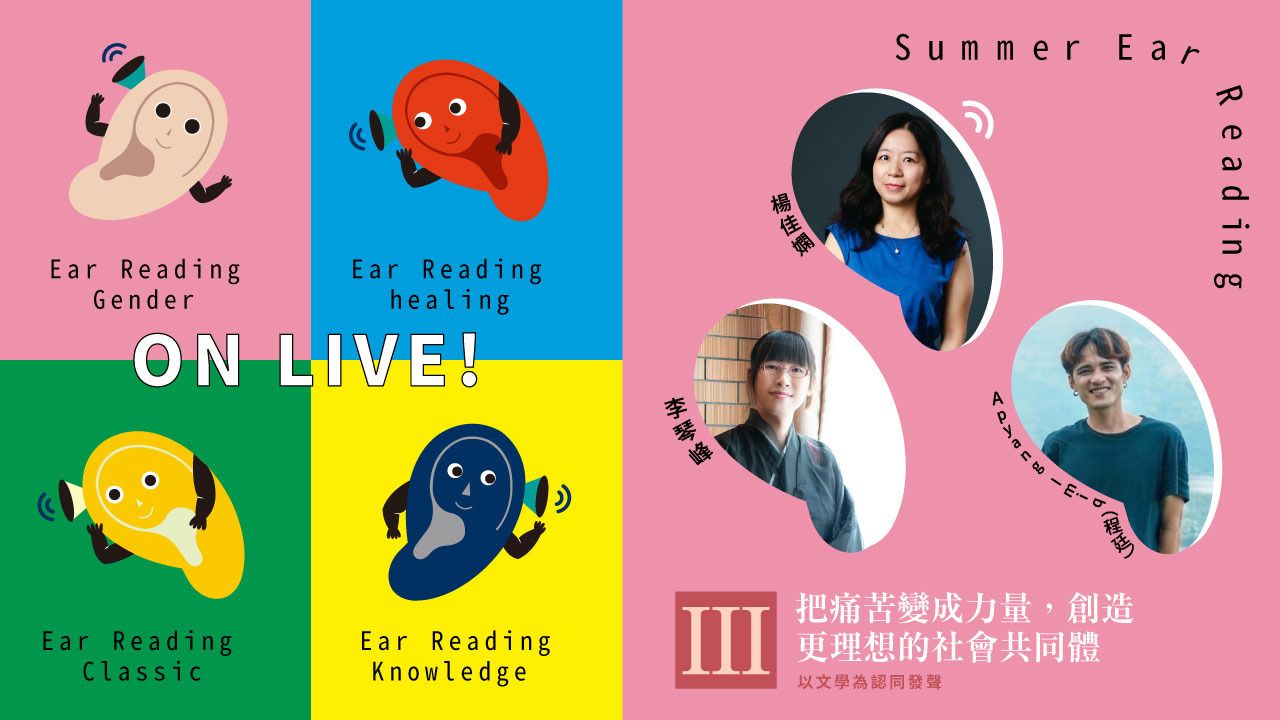
Moderator: Yang Jiaxian; Panelists: Li Qinfeng, Apyang Imiq (Cheng Ting)
Text finishing: Li Yikun, Chen Bojun
➤ When learning tribal culture, it is important to find a comfortable state
Yang Jiaxian: Apyang's book mentions Gaya , which has a very complicated meaning. In short, it can refer to "taboo". Do you think Gaya in the tribe can be moved?
This question is asked because we say that we want to revive and learn tribal culture, which actually includes observing these Gayas . But what should you do if you like the way you look, or if something you are interested in offends Gaya ? For example, the society will continue to change, and new ideas will be passed on to the tribe. Is Gaya likely to be loosened because of this?
I remember you wrote in the book that as a biological male, you are very keen to learn the culture of farming and hunting, but you are also very interested in weaving. You describe that when you want to touch the loom, some people will sternly say absolutely not because you are male and you cannot touch it.
You learn to hunt as well as weaving, is that intentional? Do you want to challenge Gaya ?
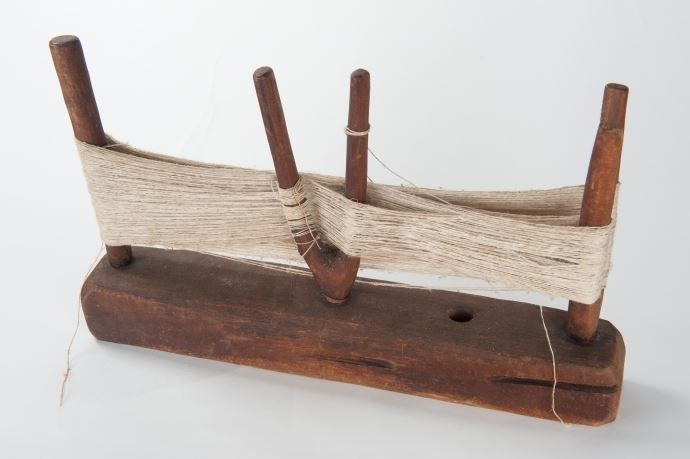
Apyang: When we talk about Gaya , we don’t refer to taboos specifically. It can be more generalized and interpreted as “culture”. I didn't actually do it on purpose, I just thought it was fun, which is related to my upbringing background. Although I grew up in the tribe, I didn't leave until college. In an exclusive interview a while ago, I was asked if I had been in Taipei City for about 10 years, would I feel that my stage in Taipei was a process of being Chinese. After thinking about it later, in fact, without leaving the tribe, the aborigines will be sinicized, modernized, or in various complicated situations at home.
For me, Gaya itself is not a fixed, unchanging point. The "tradition" itself will change, such as marriage, divorce, going up the mountain, buying a car, and joining the army, all of which will kill pigs. We also call this Gaya . Some reasons for killing pigs are actually different from before. How to kill pigs and how to divide pigs is also different from the past.
When I didn't know much about tribal culture before, I always felt that it was rare to hear some Gaya . For example, when a hunter goes up the mountain, you can't fart in the forest, it will affect your harvest. But when he actually followed the elder up the mountain, he found out why he was farting? In fact, many of us regard it as something that cannot be changed. In fact, there are many possibilities of loosening in the real situation. I have also heard that girls from some tribes learn to hunt, because there are really no boys in their family, and their family has to be hunted, so she still has to do it.
So for me, Gaya is a feeling. When we identify with ourselves or have a strong identity with our own culture, we should be in a comfortable state. We need to let ourselves find that state. It's not how I should be on the way to learn culture, but to find a comfortable state for myself, which is more important.
➤ Use literature to explore your own situation
Yang Jiaxian: When it comes to returning to the hometown and learning tribal culture, the image that comes to mind is a long way to go, as if taking on some kind of responsibility of the times. But I think what Apyang said is very interesting and very human, and the "comfort" thing is very important. Moreover, traditions are indeed not rigid antiquities waiting to be dug up by everyone. They should be flexible, and they are also things that are gradually generated and constantly changing. The way we perceive this culture may also be changing.
Then I want to go back to Qinfeng. In Taiwan, because gay writing has developed for a long time, it can even be said that Taiwanese gay literature has its own small tradition. When reading Qinfeng's works, it often refers to other literary works, ranging from classical to modern, or literature from different countries. Many Taiwanese writers on gender writing, such as Qiu Miaojin, Lai Xiangyin, Chen Xue, etc., appear clearly in your works. In other of your works, there are also plots of writing old-style poems for your loved ones. It seems that for your fictional characters, literature is a very important way of knowing oneself, and also a conduit for conveying feelings.
So I would like to ask you to talk about the role of literature as a resource or mediator in your gender writing? Do you intentionally put these things into your work, hoping to make readers recognize this writing tradition?
Li Qinfeng: First of all, in terms of "Solo Dance", it is more natural than intentional. First of all, set the protagonist to be a Taiwanese, a Taiwanese comrade who likes literature at the same time. In this generation, those who like literature and are lesbians have a high chance of meeting Qiu Miaojin, so I think it is natural to include Qiu Miaojin. In addition, the protagonist was born in 1989. Her education in Chinese and high school Chinese was mainly classical Chinese and classical literature, so it is natural to quote Qiu Miaojin, Lai Xiangyin or some classical poetry in this work.
As far as I am concerned, literature does play a great role in my cognition process of the world, or my cognition process of myself. Of course, it is not absolutely, not all, but it plays a great role. It allows us to use an overhead perspective, or a more omniscient and macroscopic perspective, to see our own situation and our own life, and then gradually establish self-identity. Of course not all people are like this, but for me, or for Zhao Jihui, it is very important.
Yang Jiaxian: I only learned about Dazai Zhi from Qiu Miaojin's book. I think that literature itself will form a certain kind of transmission. I can find other possibilities of reading in this person's book. Like a long river, it will continue to be passed on, and thus form my own reading map, which will then be nurtured in turn. Own.
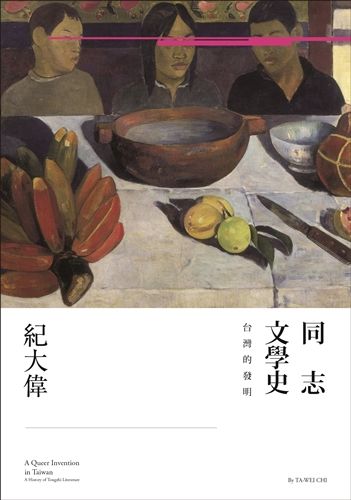
Of course, I am also a literary youth. When I read "Solo Dance" and other works by Qin Feng, I can feel the power of literature. This can also be echoed by Ji Dawei, who specifically mentioned in "The History of Gay Literature" that in the past, the knowledge or description of homosexuality in the newspapers and media was often negative or sensational news. If you are a gay today, how do you know yourself? Imagine the future, etc., maybe through literature (maybe some people through film and television works). Apparently, literature was a very important conduit in certain times.
➤ "Confession Heba" reading aloud
Yang Jiaxian: Jing Hao Ting has released the audiobooks "Solo Dance" and "I Grow in an Open Tree Hole", which are read aloud by professional voice anchors. But this time, I have received feedback from many readers, and everyone is very much looking forward to hearing the "voice" of the two authors in person. Next, we're going to invite two authors to read the clips, and we'll invite Apyang first.
Apyang: What I want to read is "Confession Heba". As I write this, my roommate, my spouse, is actually sleeping. When I was done, I read it to him in his ear. This is actually a love letter I wrote to him, and also a love letter I wrote to my own tribe.
You gave me courage and made me strong. You are not afraid to come out of the closet, and you can easily tell the people around you about your sexuality. That kind of elasticity is like water, and I also imagine water, sharing life freely. Returning to the hometown and settling down is supposed to be comfortable rather than imprisoned. It is human nature to love each other. There are so many things in this tribe: the mattress in the room, the workshop on the mountain, the grass beside the ditch, the toilet for karaoke, the back of the school classroom... …Each one makes me envious.
Love is full of Zhiyagan, the river knows how to swallow it, and the river will not exclude it, so do my love and sexual impulses for you, all contained in the flowing Zhiyakan stream.
On the river dam, I told you the stories of many branches of Akan, among which there is an open tree hole, this stream flows east from Baishi Mountain, the water rushes to the river dam, and the opening suddenly expands, like a big mouth, Like a cave, holding us together, swallowing in a tree hole, our Bhring formed a tornado, spinning in place until it disappeared in the water.
That night, we kissed and hugged, and exchanged wind with each other. During the day, you send back the message: "Let's be together!"
Yang Jiaxian: "Confession to Heba" is the sweetest one in the whole book. In a very innocent and bold way, sex is written as an important part of love. In Taiwan's past comrade writing, there are few such natural expressions. I don't mean to say that people don't write about sex, but they write about sex, but this is a very direct confession in the style of prose, without any tweaking.
Next, ask Qinfeng to read the selected passage aloud.
➤ "Solo Dance" reading
Li Qinfeng: Next, I will read the second half of Chapter 16 of "Solo Dance". After the protagonist arrives in Sydney and walks through the gay parade, he arrives at Lincoln Rock's inner monologue.
She recalled the scenery she had seen along the way, and the people she had met along the way. The Golden Gate Bridge, which was covered with mist and misty, and Caroline, who was soaked in the rain and quietly looked at the bridge. Like a silver dragon, the Great Wall crouching over the mountains, and Urentuya looking up at the Great Wall. The parade of six-color rainbows jumped around, and Bai Yan and Ba Si, who were laughing and joking while watching the parade. Sleepless New York Manhattan, the bright neon red of Stonewall Bar, and the warm winter sun graze comfortably in Central Park. The Mausoleum of Qin Shihuang and Huaqing Palace lie on the south side of Mount Li and face the Wei River on the north side. On the south side of the Big Wild Goose Pagoda, the statue of Xuanzang Sanzang stands solemnly. Men and women of all generations in the square beside it are happily dancing square dances. The crimson Forbidden City is covered with pure white snow, and the narrow and dirty alleys are wet with fog and rain. Then there is Sydney, the sky and the ocean so blue that one can’t help but swallow, and the mountains are so sacred that one can almost forget all the suffering in the world—
She closed her eyes, and the sky, white clouds, mountains, and green trees were all covered by boundless darkness. The people and things that I have seen in my twenty-eight years of life, the scenery and the expressions of the characters, are tumbling in my mind. Then gradually, those scenes settled down, and soon, the surface of consciousness returned to the calm water with unpleasant ripples.
A tear slipped down her cheek, and when she felt that tear slip down, she noticed how fascinated she was with the beauty of this world, how much she truly loved this world. In this world, people think that they are too narrow and restrained when they want to live, and they want to die, but they are too entangled in love. It was not until she had gone through another journey with the world and truly stood on the boundary between life and death that she realized her nostalgia for the world again.
➤The way of happiness for gay couples living in the Taroko tribe
Yang Jiaxian: After the publication of the book "I Grow in an Open Tree Hole", it has caused a lot of discussion among friends who are concerned about gender and indigenous writing. Apyang said that everyone has been paying attention to the serious issue of returning youth. He hopes that everyone can talk about life-like things, so I want to ask some really super-life-like things: How do comrades in the tribe make boyfriends?
Maybe everyone still uses dating software - this question seems to be a bit preset. But when we're very unfamiliar with tribal life, and we're Muggles of Aboriginal culture, something like this might come to mind. Do you and your partner live in a tribe? (Apyang: Yes.) What is the happiest thing about living in the tribe together? Will he go hunting with you? Can he go hunting with you? What do you think is the biggest difficulty and test?
Apyang: In the beginning, when I didn’t dare to open my relationship with others, everyone in my family knew about it, but the family in my tribe always came and went. Many relatives, friends and good friends would come in and see him. Will ask who is he? My parents didn't know how to answer, they would say that he was cooking. It bothered him at first and wondered why he could only be introduced to this role.
The thing that makes me happy is that he lives with me in a place I like. We didn't live in my place all the time. We were actually the tribe next door, the village next door, so we would take turns living on both sides, sometimes with our tribe and sometimes with him. I think it is the happiest thing to be able to live in a place that you like, with the person you like, and then you can get along well with your own family or the other's family, and you will be very happy.
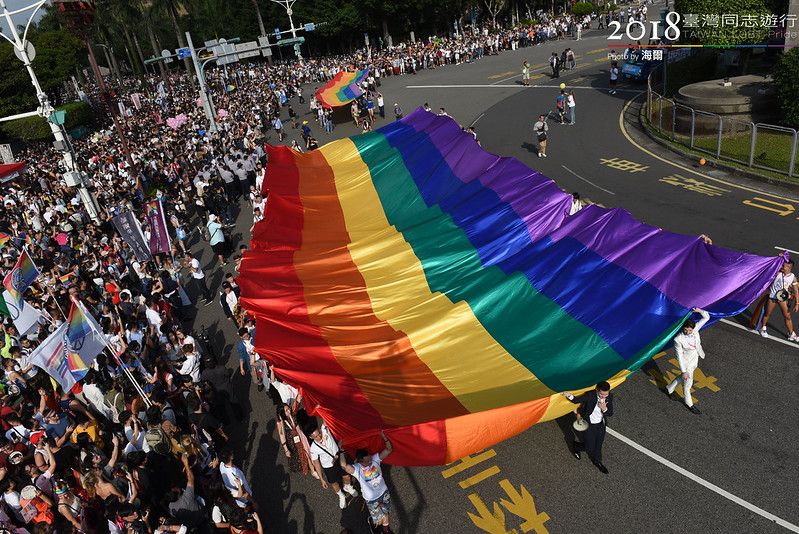
➤Different from the existing imaginary community of society, country, and country
Yang Jiaxian: The whole book of "I Grow in an Open Tree Hole", if you read the book slowly from the first page to the end, you will think that the last article is too much, and put it like this! The last sentence of the book is: "Let's be together".
Next, I want to ask Qin Feng. There are comrades from different countries in "Solo Dance" who meet by chance and necessity, and this kind of plot also appears in other works of Qinfeng. For you, is there a looming possibility of comrades joining together and becoming each other's strength? In other words, in this not-so-beautiful real world, there is the possibility of a gay republic. Does your novel, in the end, hope to raise such a possibility?
Li Qinfeng: I think it is not whether I am willing to propose such a possibility, but that such a possibility does exist. However, I think it is more like an imaginary community, an imaginary community that is different from the existing society, country, or existing organization. Such a connection may be based on fiction, but we will imagine that we share some history, some experience, and some pain.
For example, when we talk about the history of gay rights, we go back to the Stonewall movement, we go back to the history of AIDS, etc., and we immediately think of those things. Based on the fictional association of the imagined community, we may also empathize—of course, it is impossible to fully empathize, but we may also try to empathize—when Chechnya rejects gays, the gay community is experiencing great pain.
For another example, we would be very angry when Russia introduced an anti-gay propaganda law. In other words, Afghanistan is under the control of the Taliban again, and many women and LGBT groups will be suppressed, oppressed, and even put their lives at risk. We are deeply saddened.
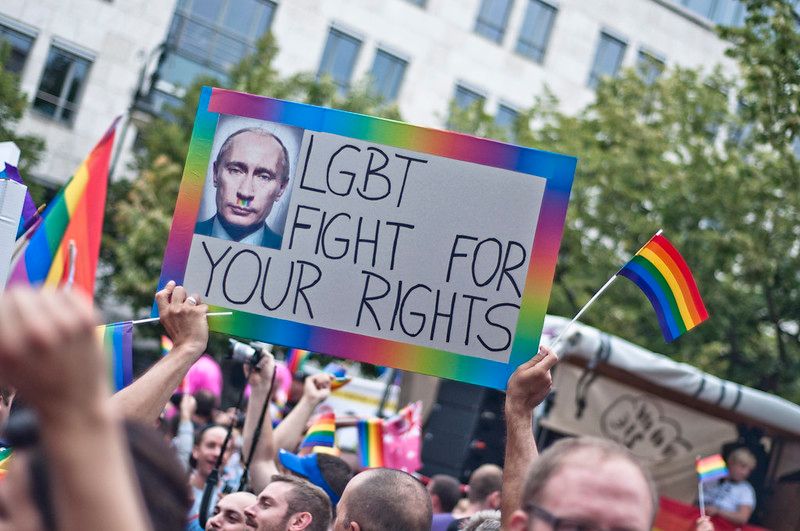
In fact, to be cruel, these don't seem to be so relevant to us, but based on the common imagination that you are a woman, or a gay community, we can imagine the pain of these people, and imagine whether these pains are possible or real in the past. happen around you.
Once I traveled to China, I met a few Chinese lesbians by chance, and they took me to play. I really only had one relationship with them, but they told me, God Laraben family. I feel very strange, I have only met them once, or I don't know them at all, but I know A, and then A introduces me to B. A is in Beijing, her friend B is in Xi'an, and then I go to Xi'an, and B will take me to go shopping.
I think this is a wonderful connection, and you could say it's an ironic connection: if there were no social oppression, if it weren't for weakness, there probably wouldn't be such a connection. But this kind of association is indeed a possibility. Let us try to resist the oppression and discrimination of male hegemony, heterosexual hegemony, cisgender hegemony, etc., and become such a force.
Yang Jiaxian: I still like to imagine this kind of gay republic. In Qin Feng's works, we can also see the existence of the literary republic. Everyone uses literature as a bridge or platform to allow the mind to find the possibility of dialogue or settlement.
➤ Turn pain into strength
Yang Jiaxian: I am very happy to have a conversation with the two of you today.
When I was reading Apyang's "I Grow in an Open Tree Hole", I felt that the whole book took us to experience how a returning tribal youth became himself again, to be a Taroko member, and to be a strong and happy comrade. Of course, what I call strong and happy does not mean that there are only positive aspects and no other aspects, but I think Apyang is a very powerful person.
The tree cave is an important image of this book, we can say that it is both a storage place for treasures, a cave from which a river is spit, and of course a passage of passion in the body. In the last article of the book, my favorite lines are: the river water knows how to devour, and the river water will not be excluded, an inclusive and flowing image, which I think is very beautiful, and can represent the core spirit of Apyang's book.
Qin Feng's "Solo Dance", from Taiwan to Japan, groping for "women love women" in the painful growth, is a pursuit that spans a wide range. When Zhao Jihui and Xiaoxue met again in Sydney and talked about everything, Xiaoxue said that Ji Hui was actually strong enough to be brave, and then Ji Hui's mind came to the picture of a woman in black spinning and dancing alone.
We can say that this is actually the dance of death and the virgin, the dance of death and birth. Then, Ji Hye thought that she was going to survive and she was going to continue writing. At the end of the work, she crosses the gate of death, but we don't want to stay at this moment of death. Although the beginning of this novel is death, and the end seems to be heading towards this direction, but in the end, it crosses over and overcomes it.
Therefore, I think that these two works actually bring us the atmosphere of looking forward to gender writing in the new era. Looking ahead, it's not that there is no pain, it's how we turn our pain into a power.
Today is the first session of Jinghao's Summer Ear Reading Festival. If you have already read "I Grow in an Open Tree Hole" and "Solo Dance", it is definitely worth reading again. If you haven't read it yet, this is the best option for your summer reading time. Today's event is here, thank you two very much, and also thank the audience friends who have been with us online, thank you. ●( The original text was first published on the OPENBOOK official website on 2022-07-10)
➤Speaking with literature as the identity, a complete profile
From Language, Gender to Ethnic Group | Amidst Multiple Vulnerabilities, Exploring Miracles to Live by | Creating a More Ideal Social Community
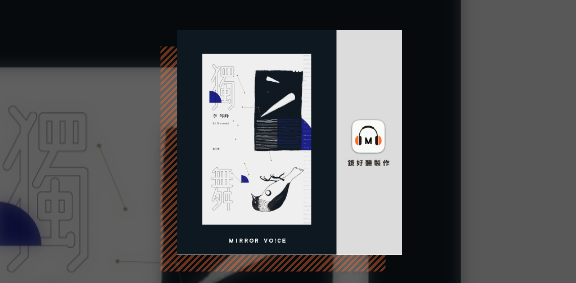
"I Grow in an Open Tree Hole" Audiobook
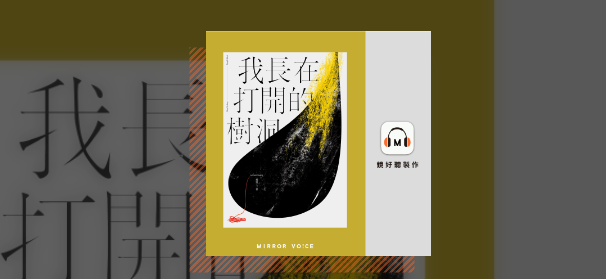
Like my work? Don't forget to support and clap, let me know that you are with me on the road of creation. Keep this enthusiasm together!

- Author
- More